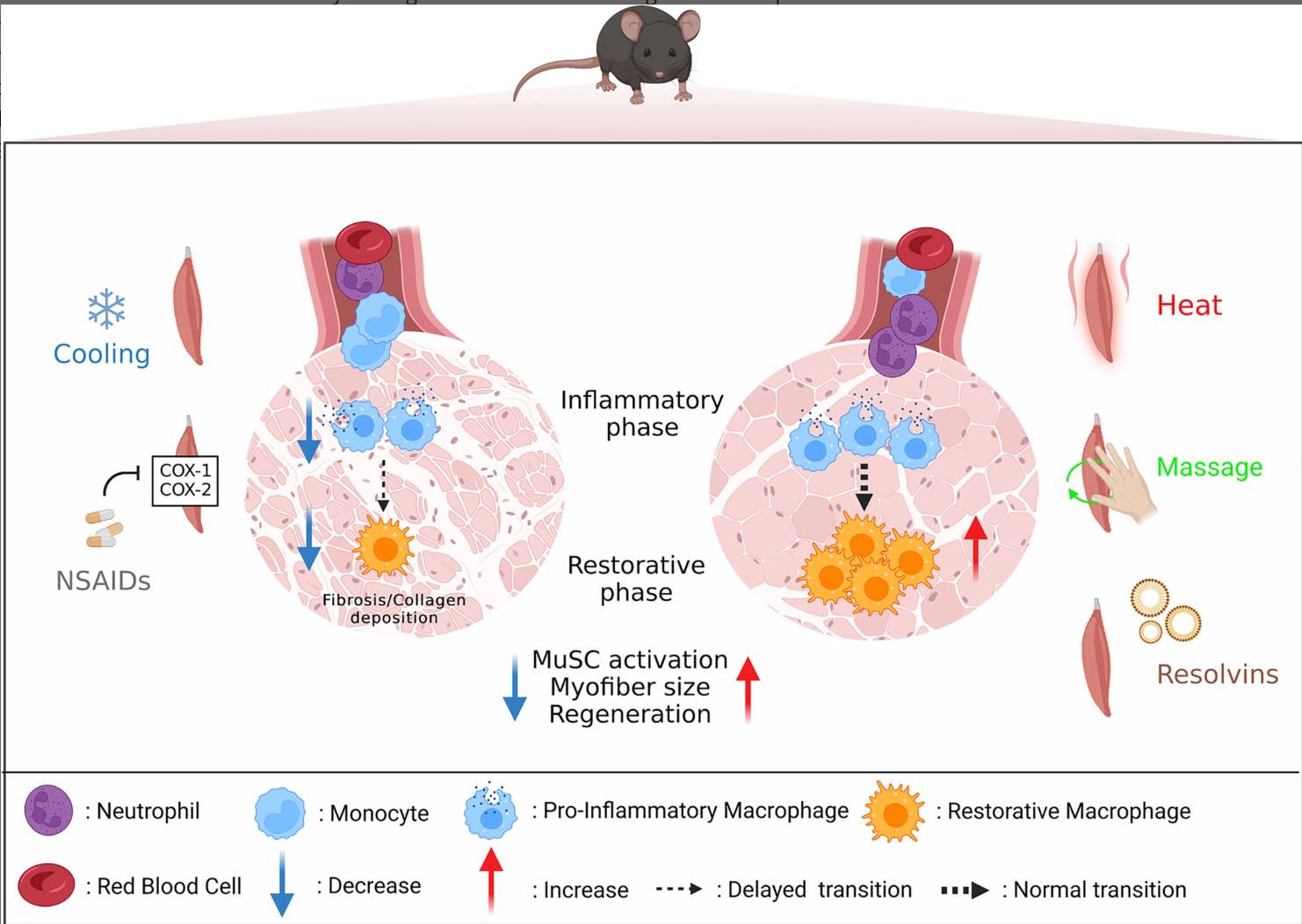Role of macrophages during skeletal muscle regeneration and hypertrophy—Implications for immunomodulatory strategies
Clara Bernard Physiological Reports 06 October 2022
Skeletal muscle is a plastic tissue that regenerates ad integrum after injury and adapts to raise mechanical loading/contractile activity by increasing its mass and/or myofiber size, a phenomenon commonly refers to as skeletal muscle hypertrophy. Both muscle regeneration and hypertrophy rely on the interactions between muscle stem cells and their neighborhood, which include inflammatory cells, and particularly macrophages.
This review first summarizes the role of macrophages in muscle regeneration in various animal models of injury and in response to exercise-induced muscle damage in humans. Then, the potential contribution of macrophages to skeletal muscle hypertrophy is discussed on the basis of both animal and human experiments. We also present a brief comparative analysis of the role of macrophages during muscle regeneration versus hypertrophy. Finally, we summarize the current knowledge on the impact of different immunomodulatory strategies, such as heat therapy, cooling, massage, nonsteroidal anti-inflammatory drugs and resolvins, on skeletal muscle regeneration and their potential impact on muscle hypertrophy.














